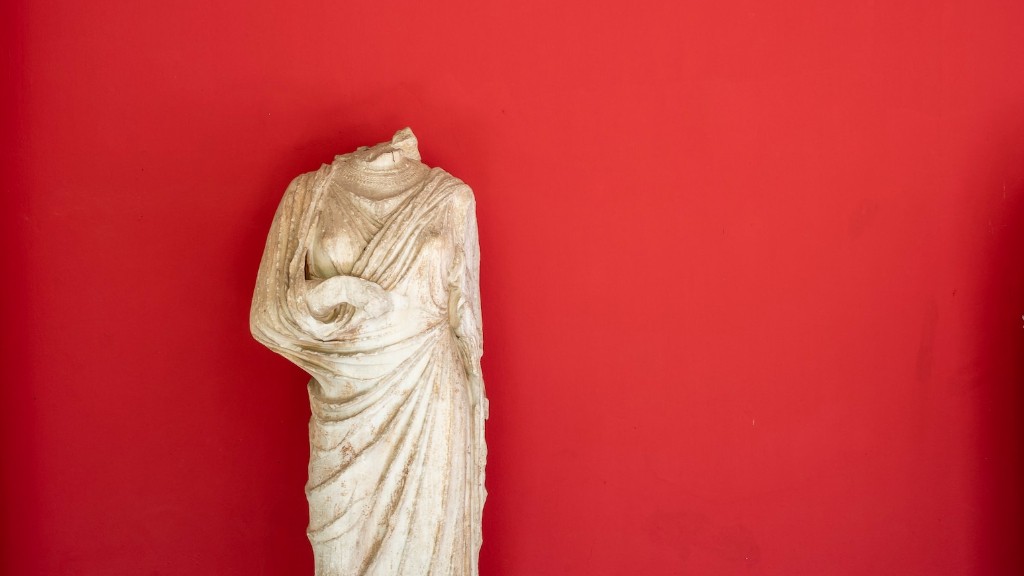How was Ancient Greece Shaped by Intercultural Exchange?
The civilization of Ancient Greece was greatly influenced by intercultural exchange with other societies, which played a pivotal role in shaping its development. This article explores the impact of intercultural exchange on Ancient Greece, highlighting the ways in which interactions with other cultures influenced various aspects of Greek life, including art, architecture, literature, philosophy, and political systems.
1. Art and Architecture
Intercultural exchange had a profound impact on ancient Greek art and architecture. The Greeks borrowed techniques, motifs, and even entire artistic styles from neighboring civilizations such as Egypt and the Near East. For example, the influence of Egyptian art can be seen in the use of hieroglyphic motifs and the concept of representing the human figure in a stylized way. Similarly, the Greeks adopted the architectural style of the Egyptians and integrated it into their own monumental buildings, such as temples and public spaces.
Furthermore, Greek art and architecture were also influenced by the Persians, as seen in the use of monumental sculptures and the incorporation of Persian architectural elements. The interaction between these cultures resulted in a unique blend of artistic styles and techniques that characterized Ancient Greek art and architecture.
2. Literature
The exchange of ideas through literary works was another significant aspect of intercultural exchange in Ancient Greece. The Greeks were exposed to the literary traditions of other civilizations, such as the epic poems of the Mesopotamians and the religious texts of the Egyptians. These texts influenced the development of Greek literature, with elements of these foreign traditions being integrated into Greek epic poetry and dramatic works.
Additionally, the Greeks also had direct contact with other cultures through trade and colonization. This enabled them to learn about foreign customs, beliefs, and stories, which were often incorporated into their own literary works. For instance, the influence of ancient Near Eastern mythologies can be seen in Greek epic poetry, as seen in the similarities between the Greek story of the Trojan War and the Mesopotamian epic of Gilgamesh. These intercultural exchanges enriched Greek literature, making it more diverse and multidimensional.
3. Philosophy
The birth of philosophy in Ancient Greece was greatly influenced by intercultural exchange. Greek philosophers were exposed to the ideas and philosophies of other cultures, such as Egypt, Persia, and the Near East. This exposure allowed them to question their own beliefs and develop new ideas and perspectives.
For example, the Greek philosopher Pythagoras is said to have traveled to Egypt and learned about their mathematical and philosophical teachings. He then incorporated these ideas into his own philosophy, which greatly influenced the development of mathematics and scientific thought in Greece.
Furthermore, the Greek philosopher Heraclitus was influenced by Persian religious and philosophical concepts, which led him to develop his theory of the Logos. This concept, central to his philosophy, emphasized the interconnectedness and harmony of all things, drawing on Persian ideas of cosmic order.
4. Political Systems
Intercultural exchange also played a key role in shaping the political systems of Ancient Greece. The Greeks were exposed to various forms of governance through their interactions with other cultures, including Asian and African civilizations.
One notable example is the concept of democracy, which originated in Ancient Greece. The idea of citizen participation in decision-making was influenced by the political practices of other societies, including the tribal assemblies of the Celts and Germanic tribes. This concept was then refined and developed by the Greeks, leading to the establishment of the world’s first democratic city-states.
In addition, the Greeks also adopted and adapted ideas of governance from other cultures, such as the administrative systems of the Persian Empire. These exchanges of political ideas and practices contributed to the development of Greek political systems, which had a lasting impact on the world.
In conclusion, Ancient Greece was shaped by intercultural exchange in various ways. Art and architecture, literature, philosophy, and political systems were all influenced by interactions with neighboring civilizations. These exchanges of ideas and practices enriched Greek culture and contributed to the development of a unique and influential civilization. The impact of intercultural exchange on Ancient Greece highlights the importance of cultural diffusion and the value of embracing diversity in shaping the course of human history.



